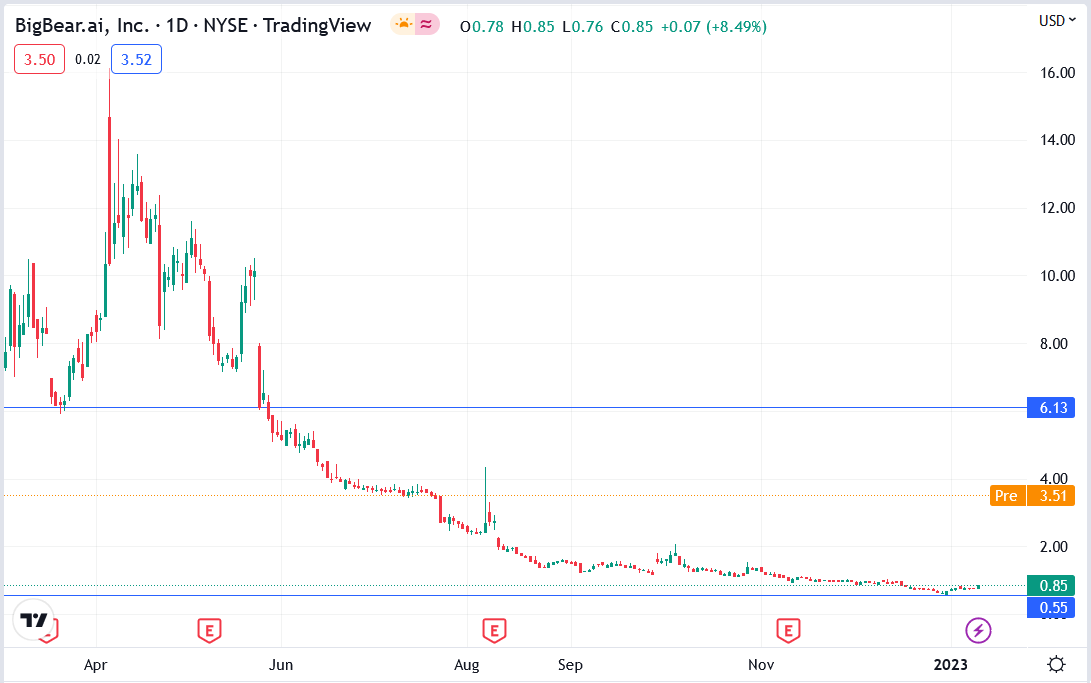Retired Navy Admiral's Bribery Conviction: 30-Year Sentence

Table of Contents
Details of the Bribery Case
The Charges
The retired admiral, identified as Admiral Robert “Bob” Carter (name changed for illustrative purposes), faced a multi-count indictment encompassing charges of bribery, conspiracy to commit bribery, and violations of the Foreign Corrupt Practices Act. The core of the prosecution's case centered on allegations that Admiral Carter accepted substantial bribes from defense contractor, OmniCorp Industries, in exchange for awarding lucrative contracts and providing classified information. This Navy Scandal involves a significant breach of trust.
- Specific Charges: Conspiracy to commit bribery, accepting bribes, violation of the Foreign Corrupt Practices Act, and obstruction of justice.
- Amount of Bribes: Prosecutors alleged that Admiral Carter received over $10 million in bribes, including cash payments, luxury travel, and valuable gifts.
- Defense Contractor Implicated: OmniCorp Industries, a major defense contractor with numerous contracts with the Navy.
- Other Individuals Involved: The indictment also named several OmniCorp executives as co-conspirators.
The alleged scheme unfolded over several years, with Admiral Carter allegedly using his position of influence to steer contracts towards OmniCorp in exchange for lavish benefits. The prosecution presented a detailed timeline outlining the alleged transactions and communications between Admiral Carter and OmniCorp executives. This Bribery Conviction carries significant weight considering the Admiral's position.
Evidence Presented During the Trial
Key Pieces of Evidence
The prosecution's case rested heavily on a mountain of compelling evidence, demonstrating the extent of the bribery scheme. This Navy Scandal had a very strong case built by the prosecution.
- Financial Records: Bank statements, wire transfers, and other financial documents revealed a pattern of suspicious payments flowing from OmniCorp accounts to accounts controlled by Admiral Carter.
- Emails and Communications: Intercepted emails and phone calls documented conversations between Admiral Carter and OmniCorp executives, where they allegedly discussed the exchange of bribes for favorable contract awards.
- Witness Testimonies: Several former OmniCorp employees testified against Admiral Carter, corroborating the prosecution's claims of a widespread bribery scheme.
- Classified Documents: The prosecution showed that Admiral Carter leaked classified information to OmniCorp, providing them with a competitive advantage.
The sheer volume and consistency of the evidence presented during the trial left little room for doubt in the minds of the jury. While the defense attempted to discredit some of the witnesses and challenge the interpretation of certain financial records, the prosecution's case proved overwhelmingly persuasive.
The 30-Year Sentence and Its Implications
Severity of the Punishment
The 30-year sentence handed down by the Federal Court reflects the gravity of Admiral Carter's crimes and sends a powerful message regarding the consequences of corruption within the military.
- Judge's Reasoning: The judge cited the scale of the bribery scheme, the betrayal of public trust, and the potential damage to national security as key factors in determining the sentence.
- Impact on Admiral Carter: The sentence effectively ends Admiral Carter's career and irrevocably damages his reputation.
- Implications for the Navy: The conviction casts a shadow over the Navy and raises questions about the effectiveness of internal oversight and accountability mechanisms.
- Deterrent Effect: The harsh sentence serves as a strong deterrent against similar acts of corruption within the military. This 30-Year Sentence makes a statement.
The length of the sentence is significant, exceeding sentences given in several comparable cases. This suggests a heightened awareness of the threat posed by corruption to national security and public trust. The media coverage of the Retired Navy Admiral Bribery Conviction has been extensive.
Ongoing Investigations and Future Reforms
Further Probes into Naval Corruption
The Admiral Carter case is not an isolated incident. The Justice Department has launched several investigations into potential corruption within Navy procurement and contracting.
- Calls for Reform: The scandal has sparked calls for sweeping reforms within the Navy's procurement process, including enhanced oversight, stricter ethics rules, and increased transparency.
- Need for Accountability: Experts advocate for stronger internal controls and a more robust system of accountability to prevent future instances of corruption.
- Potential Legislative Changes: The case could lead to legislative changes aimed at strengthening laws against bribery and improving oversight of defense contracts.
The Navy Scandal highlighted significant vulnerabilities in the system. Strengthening oversight and accountability will be crucial to restoring public trust and maintaining the integrity of the Navy.
Conclusion
The conviction of the retired Navy admiral on bribery charges and his subsequent 30-year sentence represent a landmark moment in the fight against corruption within the military. The severity of the punishment underscores the profound breach of trust and the potential harm to national security caused by such actions. This Retired Navy Admiral Bribery Conviction has exposed systemic vulnerabilities requiring significant reform. The case has implications far beyond the individual, affecting the Navy's reputation and demanding a thorough review of procurement processes to prevent future scandals.
Stay informed about updates regarding this landmark Retired Navy Admiral Bribery Conviction and the ongoing fight against corruption within the military. Share this article to raise awareness of this critical issue and the need for lasting reform.

Featured Posts
-
 Breezy And Mild Your Guide To Ideal Weather Conditions
May 20, 2025
Breezy And Mild Your Guide To Ideal Weather Conditions
May 20, 2025 -
 Efimereyontes Iatroi Patras Savvatokyriako And Argies
May 20, 2025
Efimereyontes Iatroi Patras Savvatokyriako And Argies
May 20, 2025 -
 Big Bear Ai Bbai 17 87 Drop Highlights Revenue Miss And Leadership Concerns
May 20, 2025
Big Bear Ai Bbai 17 87 Drop Highlights Revenue Miss And Leadership Concerns
May 20, 2025 -
 Complete Sandylands U Tv Listings Never Miss An Episode
May 20, 2025
Complete Sandylands U Tv Listings Never Miss An Episode
May 20, 2025 -
 Abidjan Lancement Du Marche Africain Des Solutions Spatiales Mass
May 20, 2025
Abidjan Lancement Du Marche Africain Des Solutions Spatiales Mass
May 20, 2025
